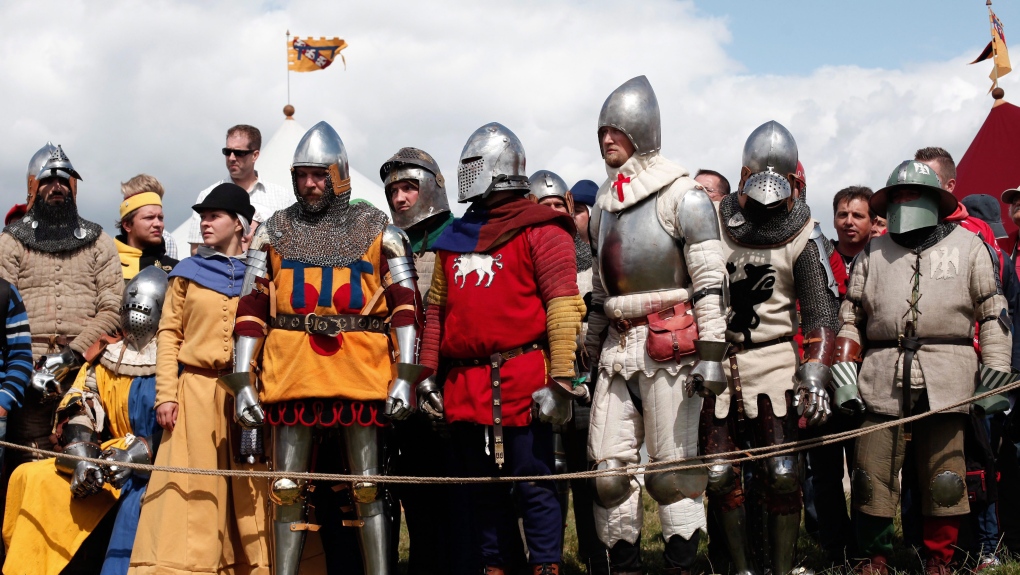Hear ye, hear ye!
A rare manuscript from the 15th century offers a glimpse into how minstrels entertained their audiences and that no matter a person's social standing at the time, no one was safe from being the butt of a joke.
A study from the University of Cambridge published last month in the Review of English Studies details several booklets containing notes of comedic skits and parodies taken from a memory aid written by an unknown minstrel who performed in the Derbyshire-Nottinghamshire border in England.
Researcher James Wade says the scribe, Richard Heege, who was a household cleric and tutor, likely had an appreciation for comedy to transcribe the manuscript unlike other literary experts who would have considered the content as "low-brow."
“Heege gives us the rarest glimpse of a medieval world rich in oral storytelling and popular entertainments,” Wade said in a news release. “Manuscripts often preserve relics of high art. This is something else. It’s mad and offensive, but just as valuable.”
The Heege manuscript found in the National Library of Scotland contains nine booklets
The study's focus on the first booklet details a poem with a killer rabbit, comparable to a scene in Monty Python and The Holy Grail. While the poem The Hunting of the Hare only has a brief scene with a rabbit, it's a grotesque parody about how peasants trying to hunt a rabbit actually end up in a massive brawl among themselves and their wives end up cleaning up the dead and patching up the wounded.
A nonsensical verse called The Battle of Brankonwet talks about Robin Hood, jousting bears, battling bees, and partying pigs. The poem includes references to real-life villages at the time so the audience could imagine strange occurrences in their region.
One of the most notable discoveries is perhaps the earliest reference to a red herring. In a mock sermon, the minstrel told the story of gluttony among the uber-wealthy in a sermon about three kings eating so much oxen that their stomachs explode and the oxen chop each other up into three red herrings.
“The images are bizarre but the minstrel must have known people would get this red herring reference," Wade said. "Kings are reduced to mere distractions. What are kings good for? Gluttony. And what is the result of gluttony? Absurd pageantry creating distractions, ‘red herrings.’”
The manuscript also included notes made by the minstrel creating these original shows, detailing their chaotic thought process to keep up with the various absurd characters and jokes they created, Wade theorizes. As nonsensical and raunchy as the jokes can be, the manuscript revealed a time in history where, despite human strife, attempts to let loose and enjoy life were heavily carried by the minstrels of the time.
"What we find in these texts is a vestige of medieval life lived vibrantly: the good times being as good as they ever have been, and probably ever will," the study states.










































